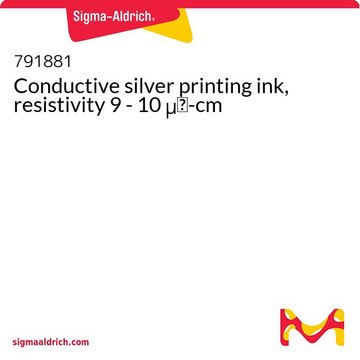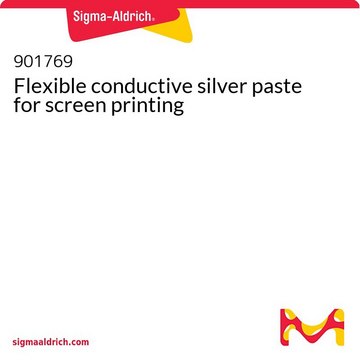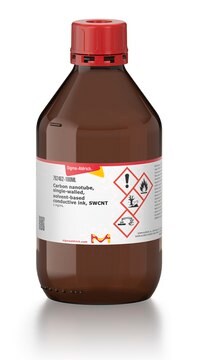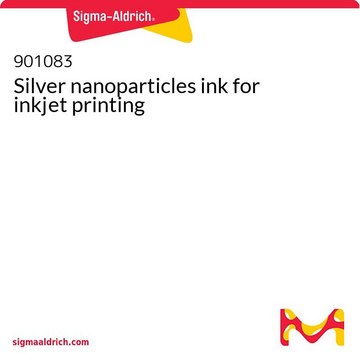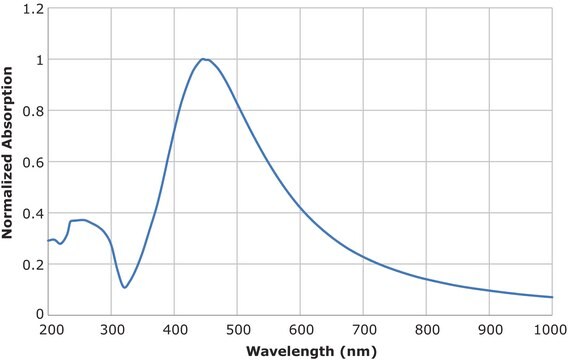901879
SunTronic® conductive silver ink for screen printing
Synonym(s):
Ag ink, SunTronic® AST6025, conductive ink, silver ink
About This Item
Recommended Products
description
Sheet resistivity: <0.010 Ω/sq/mil (150°C/10 min)
Solid content: 82-85% (120 °C)
Volume resistivity: <2.5x10-5 Ω.cm (150°C/30 min)
form
liquid
viscosity
45-55 Pa.s
storage temp.
2-8°C
General description
The ink exhibits high viscosity, low slumping, excellent conductivity and environmental stability, and adhesion to various substrates, including glass, various metals, PET, and transparent conductive films.
AST6025 is specifically suitable for printing of fine interconnects, printed RF antennae, and bus bars for touch panels.
Caution
Typical drying temperature may range from 120-200°C (248-392°F) depending on temperature tolerance of the substrate.Drying time may range from 2-30 minutes.Higher drying temperature and/or longer drying times will result in better electrical performance, adhesion and mechanical properties.
Optimum drying conditions should be established for particular equipment used by the customer.
AST6025 is supplied as ready-to-use ink. It should be stirred well prior to printing. AST6025 is suitable for use on hand, semi-automatic or fully automatic screen printing machines.
Typically, polyester or stainless screens with mesh count 325-430 threads/inch can be used depending on desired ink film thickness and resolution. For fine lines between 100 - 250 microns nominal line width, stainless screen mesh is preferred with mesh count between 325-400 threads/inch. For <100 microns line widths, 430 and higher stainless steel mesh counts are recommended.
Legal Information
Signal Word
Danger
Hazard Statements
Precautionary Statements
Hazard Classifications
Aquatic Acute 1 - Aquatic Chronic 1 - Carc. 2 - Eye Dam. 1
Storage Class Code
10 - Combustible liquids
WGK
WGK 3
Flash Point(F)
212.0 °F
Flash Point(C)
100 °C
Choose from one of the most recent versions:
Certificates of Analysis (COA)
Don't see the Right Version?
If you require a particular version, you can look up a specific certificate by the Lot or Batch number.
Already Own This Product?
Find documentation for the products that you have recently purchased in the Document Library.
Customers Also Viewed
Articles
Professor Tokito and Professor Takeda share their new materials, device architecture design principles, and performance optimization protocols for printed and solution-processed, low-cost, highly flexible, organic electronic devices.
Our team of scientists has experience in all areas of research including Life Science, Material Science, Chemical Synthesis, Chromatography, Analytical and many others.
Contact Technical Service
